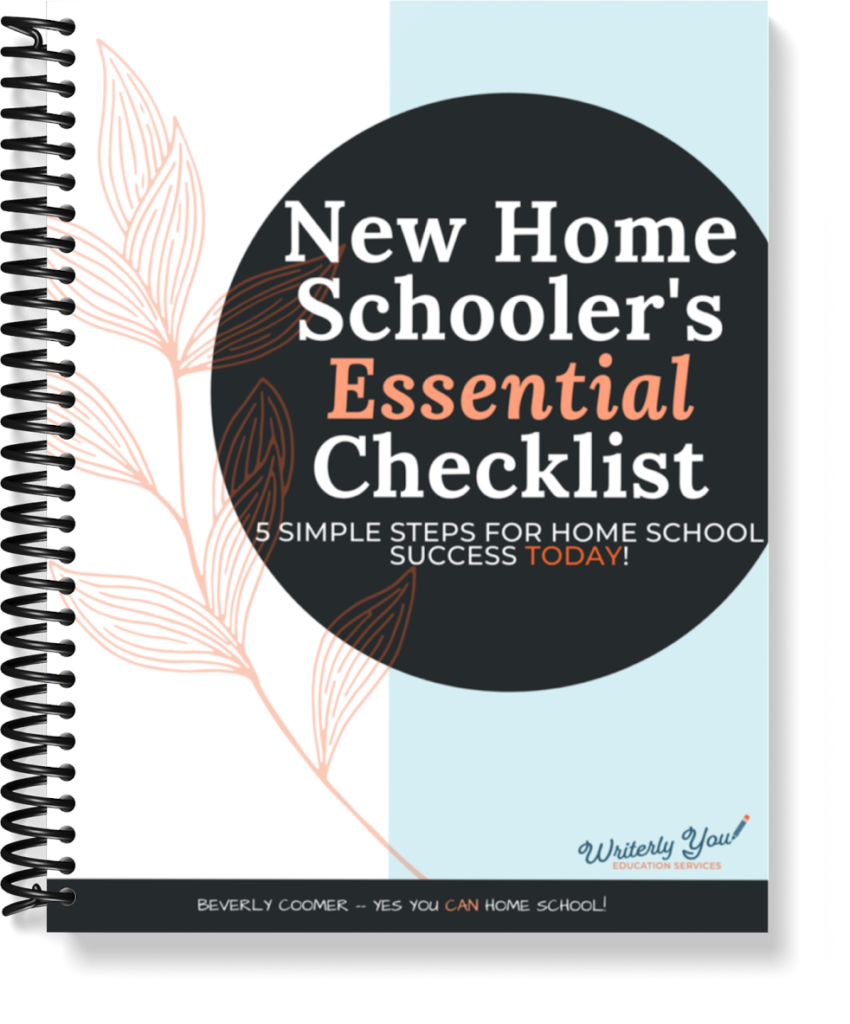From Slog to Seamless: A Quick Win for Getting In the Writing Habit

Writing Routines Aren’t Routine
Finding time to write is a problem I hear over and over from other bloggers and writers, and I even hear myself complaining about it on occasion. Often the chore of getting thoughts onto paper can feel like a slog through the swamp in wet army boots. But developing a writing routine through creating habits can transform our writing practice.
I love to write, so I needed to devise a way to fit it in on a daily basis so I could progress in both my skill and my work, and avoid the sense of drudgery which often accompanied the task.
Like you, I have so many ideas waiting patiently to be developed, half-written articles, and stories languishing in my mental files that I want to polish and publish, but I’ve struggled to get everything done. Every time I finally decide to get serious about making some changes to my routine, something always stands in my way.
Ready to home school?
Not sure where to start?
Sign up to get the New Home Schooler’s Essential Checklist. It’ll help you navigate the first steps of your home education journey simply, effectively, and stress-free.

Night-Owl Frustrations
You see, I am not a morning person. I never have been. During my growing-up years, through college and into adulthood, I hated getting up early, even to do something exhilarating or fulfilling.
I dreamed of becoming a morning person and getting my life in order so it would run smoothly, I could have an organized life and a happy family, and I’d have time to do all the things on my bucket list as well as my daily to-do’s. But nothing I tried stuck. I was one frustrated night-owl.
After years of struggling to change my habits, I finally realized that I’m just not that person, and have come to terms with it. The only people who think ‘early riser’ means before dawn are those naturally-born or trained-as-children to get up at a certain time.
Those of us who didn’t get the morning-gene, or had a more ‘relaxed’ upbringing, often felt guilty — or like classic underachievers — simply because we had a different perspective on bedtime and reveille.
It’s taken awhile, and I hope this helps you get the hint sooner in your life, but I have finally figured out that rising and ‘settling’ are not set in stone – hey, even the sun rises and sets at different times each day — and our ‘early’ can be whatever works for our own circadian rhythms, however contrary to the early bird that may seem.
That doesn’t negate our need for a daily routine, however.
Ready to home school?
Not sure where to start?
Sign up to get the New Home Schooler’s Essential Checklist. It’ll help you navigate the first steps of your home education journey simply, effectively, and stress-free.

Shift Your Writing-Time Paradigm
Unfortunately, on the days that I struggle to get out of bed, I end up losing time for my morning routine, so those minutes end up bumping into and ousting my early work projects. By the time lunch rolls around, I’ve managed to miss most of my self-imposed deadlines, and end up looking back on hours of distraction and lost opportunities –because I got up late and didn’t keep to my ‘schedule’.
Recently, however, I experienced a subtle shift in my thinking which has transformed my productivity.
I have discovered a middle-ground approach that removes the guilt of not being the early bird, gets me going consistently, and helps me accomplish my tasks, even if I don’t start at 5 a.m.
Habit Stacking
If you haven’t heard the term before, it’s called ‘habit stacking’. It’s a way of attaching new habits onto already existing ones in order to eliminate a bad habit, or create a new one. Here’s how it works:
I started reframing my mornings so that the tasks and activities I love most to do now come first, on the heels of my already entrenched morning routine, instead of on the fringes of my day (and then only if I have time once my ‘real’ to-do list is done).
You can see the problem with my old way of doing things: when I ‘rewarded’ myself with my favorite tasks once my mundane work was done, I rarely got to the rewards, since I was so good at starting late and missing opportunities.
My son’s best mixed metaphor applies here, I think: Stop beating your head against that dead horse. It’s my favorite.
Every morning, my new routine includes not only my standard turn-off-the-alarm-after-at-least-the-second-snooze-reset/read my daily devotions/make a cuppa’/take a walk/decide what to have for breakfast — but now I also set aside three 10- to 15-minute time blocks for the three most important tasks of my work day: reading, writing, and planning.
I still don’t rise before the sun on a regular basis, but when I adhere to putting my favorite tasks first, I manage to accomplish much of my work and make progress toward my long-term goals.
I find that I have more time for the rest of my work, because I start my workday with a sense of accomplishment that rarely happened under my previous schedule. Feeling more productive right out of the gate sets the tone for completing my work with less stress and fewer distractions, which allows me more room for other things.
Like making dinner. And getting the laundry done. Or going for coffee with my sistah-mamas.
Ready to home school?
Not sure where to start?
Sign up to get the New Home Schooler’s Essential Checklist. It’ll help you navigate the first steps of your home education journey simply, effectively, and stress-free.

Reduce Writers’ Block
A surprising side benefit of this new routine – which is HUGE for most writers — is that I have fewer episodes of ‘writers block’ (ask me about this another time; I have some game-changing thoughts here) when my mind is fresh and I haven’t filled my brain with the myriad thoughts that accumulate throughout my day.
Well, as fresh as my mind ever gets in the morning.
A caveat is probably in order here. We are new empty-nesters, so after many years of not always getting to choose my own schedule, I now have more freedom to choose my daily routine.
But rest assured – I’ve been where you are.
Morning might not be the best time for you to set aside personal time blocks for your favorite tasks, if you’re busy-to-the-brim helping the rest of your family, or just getting out the door to work.
Are there other times in your day when you already have a simple routine set up and you can eek out even 10 minutes to tack onto that time?
How about after dinner while other family members clean up the dishes?
Or just after you get home from work and you need to take a few deep breaths before diving into your evening?
Oh, I sense Happy Hour on a daily basis in your future — now that’s what I’m talkin’ about!
Stacking new habits on top of established behaviors – or stringing them together like beads on a thread – allows a simpler transition to the new routine and eases us into new thinking patterns.
Ready to home school?
Not sure where to start?
Sign up to get the New Home Schooler’s Essential Checklist. It’ll help you navigate the first steps of your home education journey simply, effectively, and stress-free.

Start Slow
Note to Self: don’t expect to rebuild Rome in a day, or even a week. Setting new goals and expectations will assuredly set off your brain’s comfort alarm, and you may find yourself slipping back into the inadequate but familiar old routine.
You’ll have to make a pact with yourself to start slowly; pick the ONE thing you MOST want to do every day and do that consistently until it feels unnatural if you skip it. Then move ahead with your regular routine.
The habit of daily writing is a must if you want to become a proficient communicator and create effective blog posts or article copy — or even to discover your personal writing voice. Because it often seems like a gargantuan task to sit down and write, it’s easy to put off the task until you can spend a fair amount of time diving into your idea.
But don’t let yourself get discouraged.
With habit stacking, you can begin to rethink how you incorporate the writing habit into your daily routine. Attaching a short period of time dedicated to writing to your existing routine — whatever time of day works best for you — will allow you to gradually adopt a consistent daily writing time, and still keep doing what you’re doing now.
When you can begin the habit of writing every day, even for just 10 minutes, you will see your to-do stack gradually getting thinner, and your creative juices will start flowing more freely.
Trust me, it will eventually feel seamless, and you’ll be amazed at how much better your day goes when you actually engage in something you love that also moves you closer to accomplishing a big goal.
Writing will never feel like a slog again.


This is a great idea! I love the mixed metaphor too, and I think I’m going to start using that one.